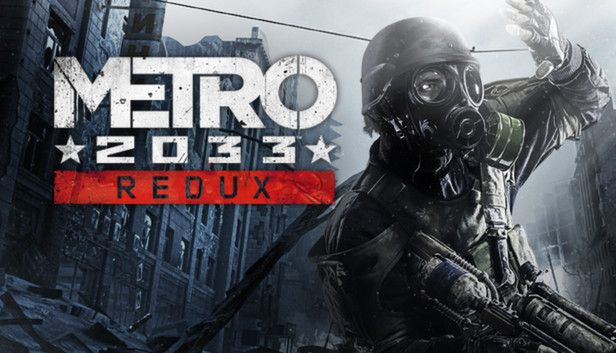TRENDING TODAY
Creative and marketing agencies are increasingly setting up specialized divisions to help brands take the growing gaming sector more seriously. Amid the ongoing talent crisis, however, how do they go about finding the best people for the job? The Drum takes a look as part of our Gaming Advertising Deep Dive.
Since the outbreak of the Covid-19 pandemic, the gaming has grown exponentially as people around the world sought friendship and community in the virtual world. Now, with excitement for the metaverse mounting, the phenomenon is only set to continue.
The popularity of the industry would suggest a competitive market with a constant flow of talent, but experts suggest that recruiters are struggling to keep up with gaming’s rapid growth. With bright talent needed now more than ever, how can agencies ensure they find the best people for the job?
2021 saw marketing agencies launch gaming offerings. Here’s how things are playing out
James Jarvis is the director and co-founder of Haptic Recruit, a recruitment agency for the gaming industry. He says one of the issues is that many marketers don’t realize that a career in gaming is even an option for them: “That is hard to believe, of course, considering the video games sector now accounting for more than half of the UK’s entire entertainment market, making it more lucrative than TV and film combined!”
He calls it a “tough industry to crack”, explaining that, due to the many nuances in how it works and the foray of roles available, “you need connections and knowledge to recruit in it successfully”.
When it comes to recruiting talent for burgeoning specialized agencies, Jonny Shaw at VCCP’s dedicated gaming proposition VCCP+ says it doesn’t need be as hard as it is. The chief executive tells The Drum: “There are many talented people with specialist gaming knowledge and expertise in the agency ecosystem, but their capability is rarely used as agencies systematically ignore the gaming space and therefore don’t organize around it.”
However, he believes agencies would be better placed if they sought out and identified the talent that is likely already scattered across their departments. “If you get your pitch and your story tight, it is then relatively straightforward to persuade that talent to consider putting gaming at the center of what they do,” he says.
WPP is teaming up with Fortnite developer Epic to upskill its creatives
Jamie McConville, the APAC regional lead at Dentsu Gaming, meanwhile says the disparity of talent isn’t necessarily a bad thing, but rather that it provides an exciting opportunity for diversity.
She tells us that when Dentsu Gaming was recruiting, it purposefully allowed for flexibility in its roles to keep horizons broad. “For example, when it came to location, this could be anywhere across the world – something we’re easily able to accommodate in Dentsu because of our scale and integrated network.”
Shaw suggests that the reason many are running into recruitment issues is because agencies are expecting too much. “If the demands are too focused on specific experience within the games world, then a lot of talent with huge potential will be excluded from the search.
“This will hold any agency back, especially when you consider some of the most important skill sets that are needed are not inherently games related.”
McConville agrees, adding: “We are never going to find people with years and years of experience in a similar role as the role simply haven’t existed that long.
“This does however mean we look for candidates who have a good balance and understanding of both marketing and gaming. They need to be able to straddle both areas confidently – it’s not enough to be just a subject matter expert in one or the other.”
When it comes to predicting where the next wave of gaming recruitment will focus, Shaw says he’s hesitant suggest how the sector will evolve. “There are a lot of phony prophets out there saying that the future is definitively going to be AR or VR centric, for example. There is no evidence to suggest that this is inevitable and businesses that are built on this assumption are in grave danger.”
For McConville, the antidote to this will be flexibility – both in the landscape of gaming and in the resulting recruitment drive. “In some cases,“ she says, “this may mean reaching out to communities outside of our typical recruitment platforms and methods.
“There will also be an increasing need for us to develop new talent and skillsets in-house in order to establish a strong future pipeline. For example, we’ve already started working with partners to establish programs that ensure we are continuously upskilling our people in these growth areas.”
Jarvis concludes that, in the gaming recruitment industry, there is only room for growth: “With the development of new technologies, platforms and games every day, there is no doubt that there will always be a constant need for new talent in the gaming industry.“
What needs to happen, he says, is for the younger generation and the education system to quickly learn that they can turn their passion for games into “one of the best careers in the world”.
For more on all the different ways brands can advertise in gaming, from virtual billboards to product placements, social lenses and even games of their own, check out The Drum’s Gaming Advertising Deep Dive.
This article is about:
Choose from a series of great email briefings, whether that’s daily news, weekly recaps or deep dives into media or creative.
Join hundreds of thousands of marketers in signing up for The Drum’s email briefings. Let our editors talk you through stories we know you’ll love.
© Carnyx Group Ltd 2022 | The Drum is a Registered Trademark and property of Carnyx Group Limited. All rights reserved.










